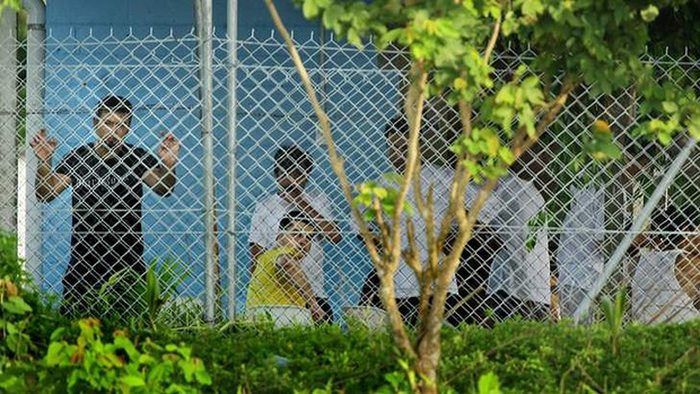Some 103 former employees of Australia’s Nauru and Manus Island detention centres have signed a letter calling for all detainees to be brought to Australia after the publication of 2100 incidents of child, sexual and physical abuse on Nauru.
The signatories who released their letter to MiNDFOOD and other media include doctors, teachers, managers and social workers from Broadspectrum (formerly Transfield), Save the Children, Salvation Army and other organisations with first-hand experience at Manus Island and Nauru.
For speaking out, many could face two years jail under Australia’s Border Force Act which makes criminals of employees who disclose information about the centres.
They have been joined by more than 1800 academics from universities across Australia, who wrote an open letter about the country’s refugee regime to Prime Minister Malcolm Turnbull and all MPs.
The Nauru files, published by The Guardian last week, revealed the contents of incident reports from just over two years on the island. More than half the incidents involved children.
The former employees say the suggestion of a parliamentary inquiry does not go far enough and that many of them have already given evidence to past inquiries and investigations.
Shivani Keecha said there were several investigations and inquiries while she worked on the island as coordinator of Save the Children’s child protection team in 2015.
“Nothing changed. It was already too little too late. We don’t need more evidence. We know these centres cause unacceptable harm. We need to bring these people to Australia and start the process of rebuilding their lives.’’
“We’ve given evidence and it’s been ignored,’’ said Natasha Reid, a former case manager with the Salvation Army and Broadspectrum on Nauru.
“No change has occurred for the men we worked with since the last Senate inquiry. The camp is not safer, conditions have not improved, the physical and mental decline of those held continues.”
A psychologist who worked in the centre said the reality was far worse than the files revealed, and he was aware of a number of severe cases and incidents that had not appeared.
“I would say 98% of the people I dealt with were suicidal,” he said. “I saw perhaps six or seven people a day. If I saw seven people six of them were suicidal…
“Adults, children, teenagers. This constant story of: I want to die, I don’t want to be here, I want to end my life.”
The academics’ letter to Turnbull and all MPs calls for an end to offshore processing, boat turnbacks and mandatory detention.
It argues Australia must work with other Asia-Pacific nations to create a fairer and more humane approach to refugees.
“The only way to make progress is to open the debate up, have a high-level summit convened by government and ask what is the best that Australia can do – because, at the moment, we are very far from that.”
The Human Rights Commission is planning to release a paper on September 7, with its president, Professor Gillian Triggs, strongly endorsing the call for a summit to canvas new approaches.
Turnbull’s office is not responding to media questions. Immigration Minister Peter Dutton last week dismissed the reports as “hyped”, false and about incidents that were already known.
He accused asylum-seekers of self-immolation – killing oneself as a sacrifice, usually by burning – purely to get to Australia.
Chris Lougheed, Save the Children’s deputy education manager, rejected Dutton’s statements. “These reports are accurate observations written by experienced professionals,” he said.
“People are in immediate danger. Too much time has already passed. The Australian government must take responsibility and bring them here immediately.”
Nauru has dismissed the reports as “fabricated” and said asylum-seekers had made up most of them in hope of being moved to Australia.
In a tweet, it accused the Australian left-wing media, Green MPs and refugee advocates of “using refugees as pawns for their political agendas. Very sad”.
Australia’s unique policy of mandatory detention of all asylum-seekers who arrive by boat (it does not apply to those who arrive by plane) has been government policy since 1992. Both major parties support it, but it has drawn outrage, scorn and condemnation around the world, including UN bodies and other governments in the region.
New Zealand has twice offered a home for asylum-seekers but Australia has never taken up the request. It has suspended aid to Nauru because of concerns about civil rights and the rule of law.







